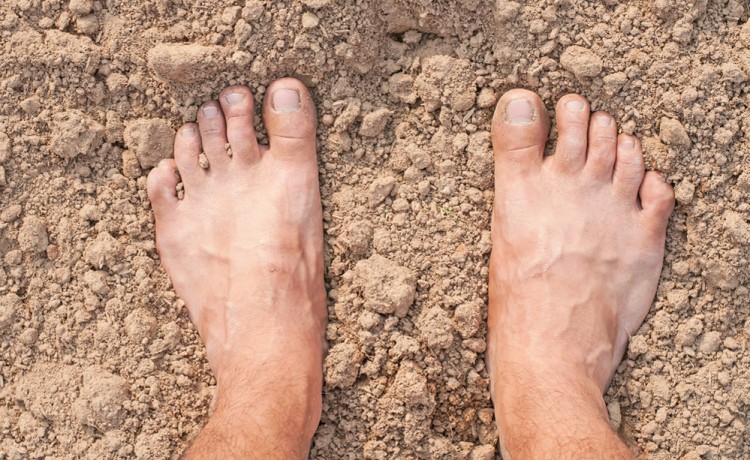
This Is It
By Trish Deitch, September, 2011
The first time I ever meditated was in the early 1990s, at a three-day workshop given at the place where I was studying yoga in Santa Monica. The first morning, I was told to sit up straight and cross-legged, to lay my palms on my thighs, to gaze down at the floor two or three or four feet in front of me, and to put about twenty-five percent of my attention on my breath going in and out. When a thought came into my mind, I was supposed to say the word, “Thinking,” to myself, and go back to my breath. We began—this little group of maybe eight or nine people sitting in an empty, light-filled, ocean-breezy room—and sat for periods of forty minutes, with five or ten minutes of walking meditation in between.
That first morning, I did this pretty simple thing that they had taught me: I put my attention on my breath, and when thoughts came up—which they did constantly, since I was an ace fantasizer and obsessive mental-list maker—I said, “Thinking,” to myself, and put my attention back on my breath. Within a couple of hours of starting on the first day, I was struck by something truly shocking: When I came back to my breath after catching myself lost in thought—when I came back into the room where I was sitting on the floor—I found myself in a kind of nonspecific but terrible emotional pain. That is, being in the present moment—being here—was the last place on earth I wanted to be. (I mean, there were a couple of moments when I came back to the breath and found myself, not in pain, but in the most wonderful spaciousness—a gap between thoughts, a break in the neurosis, that felt like no peace I had ever known. Just FYI.)
The truth is, I had never been here before. I was a writer—I made a living out of thinking thoughts about something else. I had always been a voracious reader of novels. I had done tons of drugs to get to a nicer place, and smoked a million cigarettes. I had spent half a lifetime obsessing about one man or another. I had made a profession out of not being here, because being here sucked. Honestly—why would anyone want to be here now?
After a day or so, I asked the group leader why I felt so much pain in the present moment, and he smiled at me, and he said, “You should look into Buddhism—I think you’d find it interesting.” So I did, and I discovered that what they call the “first noble truth” of Buddhism is the truth of suffering.
Anyway, this thing I’m writing here is not about meditation or the first noble truth. I wanted to tell you a story, but I needed you to know, first, that I came to Buddhism from this place of immense suffering that I discovered in my first meditation retreat. On some level, it woke me up: I knew, in that first weekend, that there had to be something very wrong if I actually preferred fantasy to reality—if I’d spent a lifetime avoiding myself. So I embarked on this journey to understand that: to understand why I—why we—suffer so much. I’ve learned a lot over the years, both about the truth of suffering, and also the cessation of suffering, and I no longer want to be anywhere but here. But again, that’s not the subject of this story.
But this is: I was in San Francisco about five years ago, at a talk given by my teacher, Dzongsar Khyentse Rinpoche. It was a Q-and-A, and people were standing up at the microphone, asking all sorts of questions about the ins and outs of enlightenment (part of the subject of the teaching). I didn’t understand how they could talk about enlightenment when they had no idea what it was. It was something so far off, something that only realized beings experienced, something we’d probably never even get a glimpse of. Hadn’t Pema Chodron and others told us that it took three countless eons to get enlightened? So I stood up and asked my teacher this question: “How can we talk about enlightenment when we’re just ordinary, unenlightened people living these ordinary, unenlightened lives?”
He looked at me quizzically, and he said, somewhat impatiently, “You people…” and he shook his head sadly. Then he said something like, “You think that enlightenment is something out there, something far off, on another plane. You Westerners are so theistic.” He paused then, and he looked me straight in the eye, and he said, “This is it.” There was silence all around. Then he said, “You people—you—have to stop thinking there’s something else. This. Is. It.”
This is it—that’s what I learned that day: right here in this room where you are right now. There’s nothing else, there’s nothing more. The Buddhists call it precious human birth, and it lasts the time it takes for a spark to fly from a fire and burn out in mid-air. We can miss it, this extraordinary ordinary, difficult, beautiful, sorrowful thing, if we allow ourselves too many distractions. There’s nothing else: This is it. Right here, right now.

